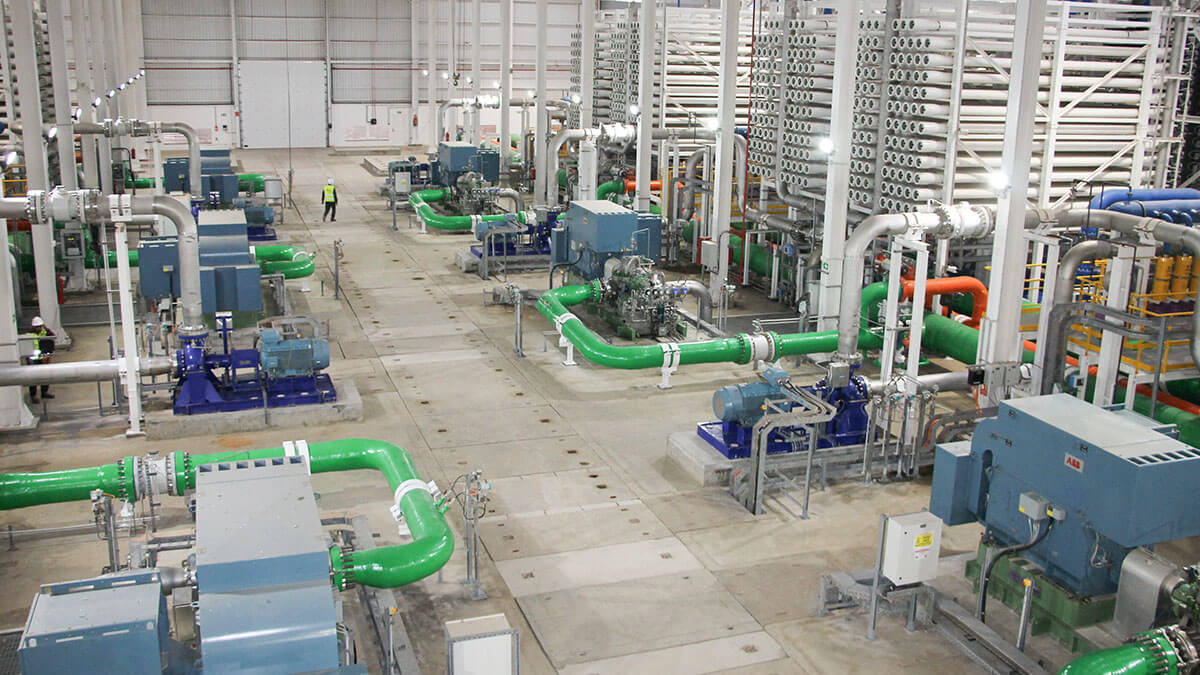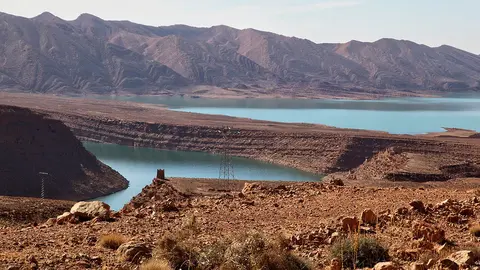Morocco seeks to desalinate 1.7 billion cubic metres of water by 2030

- A drastic increase in rainfall
- Strategies to strengthen water management
- Morocco's continued commitment to desalination
- What about the needs of rural areas?
Minister of Equipment and Water Nizar Baraka told the Moroccan parliament that despite water shortages, Morocco has increased its reservoir levels by 5.43%, enabling it to reach 4.9 billion cubic metres, rising from a filling rate of 23.70% in 2023 to 29.13% in 2024, a big improvement over last year.
A drastic increase in rainfall
Baraka noted a severe increase in water fall between 1 September and 6 December this year; in this period, the level increased by 22.7 mm to 50 mm, 83% more than last year. This surplus rainfall has had a positive influence on the government's ability to continue to meet the country's water needs.
The official also suggested measures to ensure good water distribution, particularly for irrigation purposes, and to ensure the supply of drinking water to urban areas.
In terms of drinking water, he said that 40 per cent of the annual water supply from the dams will be used. The remaining 60% will be directed to irrigation, representing 1,066 million cubic metres by 2024.

Strategies to strengthen water management
For its part, the ongoing update of the National Water Plan (PNE) aims to steer Morocco's water strategy for the next 30 years. In line with this, Nizar Baraka also reported that integrated water management plans are being developed at the regional level, which are being elaborated by the water basin organisations to put the PNE on track towards its goal.
Overall, there are a number of significant initiatives for strengthening water management. In this regard, Baraka has indicated that efforts are being stepped up to increase the efficiency of the water network by 80% by 2030. This target could become a reality, as five new dams (M'dez, Fask, Agdez, Toudgha and Tiddas) are currently being steadily filled.
The hydraulic connection project between the Sebou basin and the Bouregreg basin is currently active and aims to transfer 450 million cubic metres of water per year, with plans to extend this connection to the Al-Massira dam, due to the deficit in the Oum Er-Rbia basin.
Similarly, the progress of the water basin interconnection projects (M'dez, Fask, Agdez, Toudgha and Tiddas), which are nearing completion, was discussed. In addition, 17 new dams of considerable size are under construction, which will expand the existing network of 154 dams.
Morocco's continued commitment to desalination
Morocco has taken the issue of seawater desalination seriously, having successfully consolidated 16 desalination stations and with an additional five under construction, not counting stations planned for the future.
The minister stressed that the success of this process is reflected in the significant increase in the volume of water, from only 145 million cubic metres in 2021, when Baraka joined the government, to 270 million cubic metres in 2024. The minister has also announced a new target of 1.7 billion cubic metres by 2030. This objective could undoubtedly become a reality if management continues to be as favourable as it has been in recent years.
This commitment on the part of Morocco is primarily aimed at ensuring water sustainability, especially now that there is a growing demand for the resource and a growing climate crisis. As such, the country is aware of the waste of treated wastewater and is developing new initiatives to significantly increase the reuse of treated wastewater.

What about the needs of rural areas?
In order to address the problem of water shortages in rural regions, Baraka said 582 water tankers and 4,400 cisterns had to be purchased urgently as part of a Dh471 million ($48.5 million) project. These will be distributed to 75 water-starved provinces and prefectures, fulfilling the promise of equitably supplying the vital resource of water across the country.
To further advance these breakthroughs in Morocco's water management, funding of 104.7 million euros (MAD 1.15 billion) has been secured from the National Office of Electricity and Drinking Water (ONEE) in financing from the African Development Bank (AfDB).
It should be noted that this agreement took place during the Africa Investment Forum (AIF) and was signed in Rabat by ONEE director general Tarik Hamane and AfDB vice-president Nnenna Nwabufo. The partnership seeks to financially support the country's continued efforts to improve water infrastructure and accessibility throughout the country, thereby improving water supply systems in various regions.










